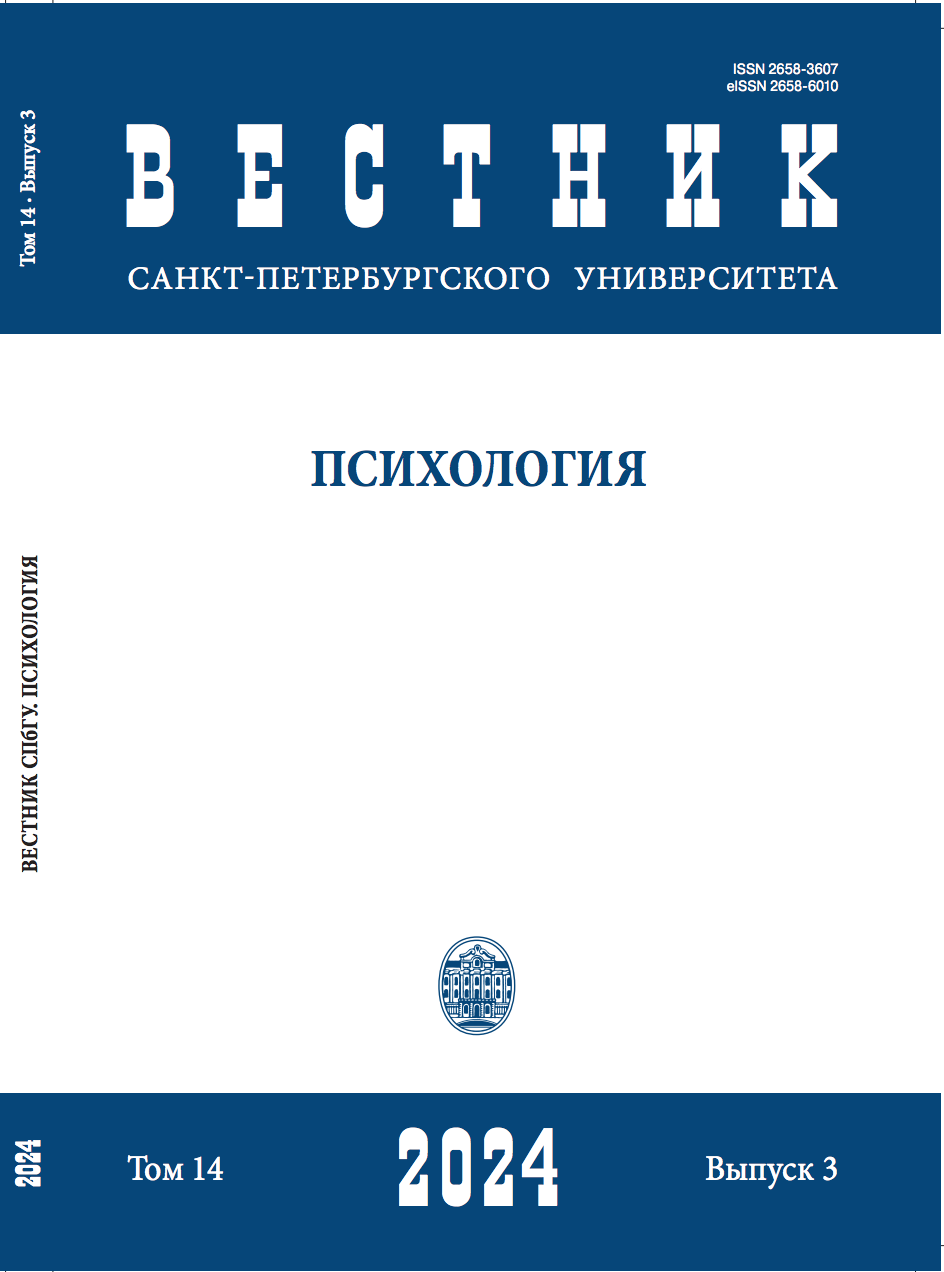Psychological factors of adaptation of medical students to a simulation-based learning environment
DOI:
https://doi.org/10.21638/spbu16.2024.308Abstract
The aim of the present study is to reveal psychological factors of medical students’ adaptation to simulation-based education. The importance of the study is based on the wide implementation of simulation technologies in medical education and practical healthcare. The aim of the study was to investigate the perceptions of medical students regarding simulation training scenarios using high-tech simulators through the focus group method. The sample comprised 132 medical students enrolled in the “General Medicine” program, differentiated by their simulation training experience: 60 students from the 4th and 5th years with experience using high-tech simulators, and 72 students from the 1st and 2nd years without such experience. The transcribed recordings of focus groups were subjected to coding and thematic analysis. The results have been used to identify 5 thematic blocks characterizing aspects of cognitive and mental representation of the simulation training environment: physical (technical), psychological and social components, and positive and negative attitudes. The primary factor affecting training perception is the practical experience gained, including practicing non-standard situations, mastering tools, acquiring practical skills, training motor skills, and learning algorithms. The second significant factor is the specific features of the Simulation Center (SC), such as limited equipment, lack of information, restricted access, and limitations in interacting with the simulator, including lack of accountability, communication, and non-technical skills training, subjective perception of the simulator’s cost, and communicative unrealisticness. In view of the obtained data, which allowed to identify specific stressors associated with simulation training, further multidimensional study of the adaptation process is planned.
Keywords:
psychological adaptation, simulation training, cognitive representation, medical students, focus groups
Downloads
References
Downloads
Published
How to Cite
Issue
Section
License
Articles of "Vestnik of Saint Petersburg University. Psychology" are open access distributed under the terms of the License Agreement with Saint Petersburg State University, which permits to the authors unrestricted distribution and self-archiving free of charge.




